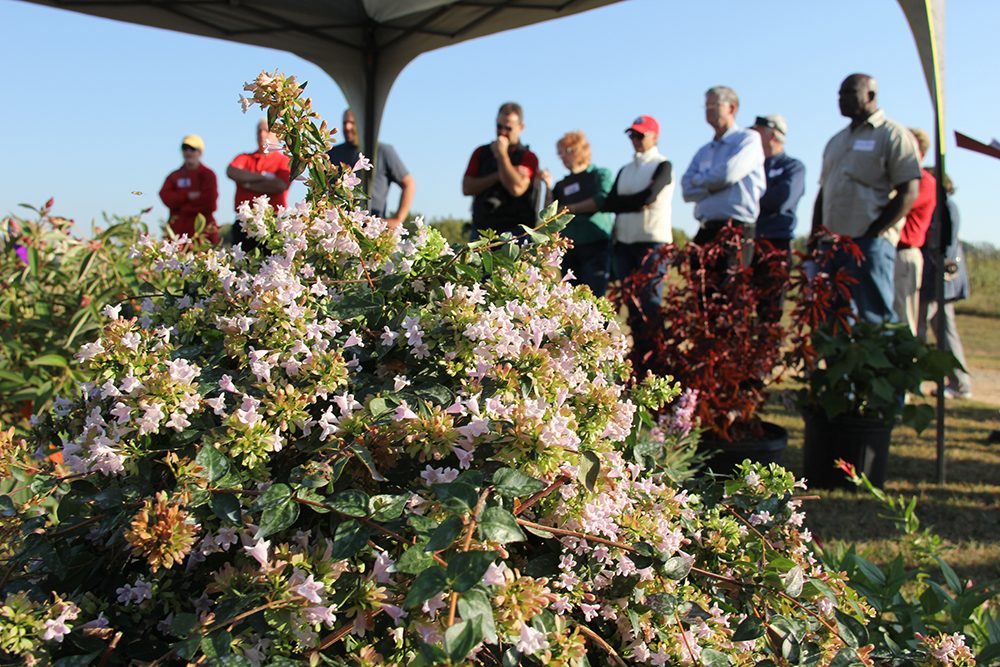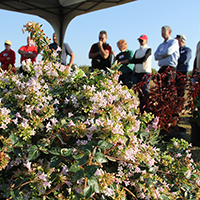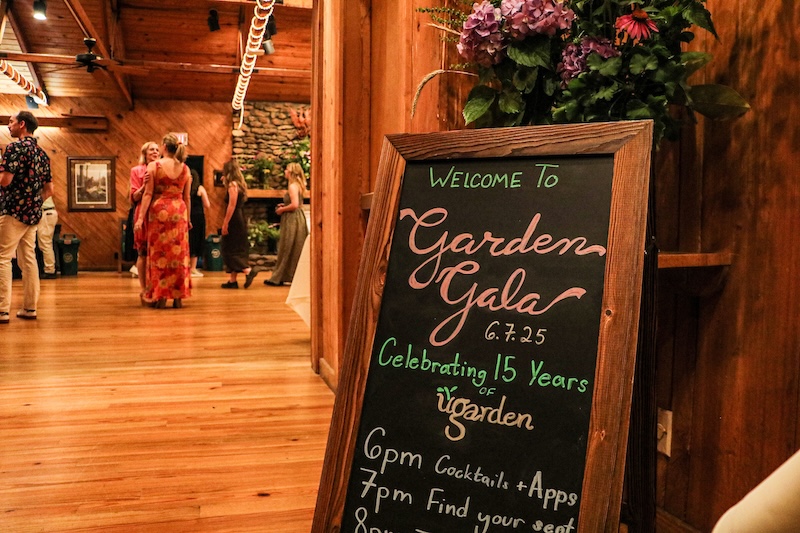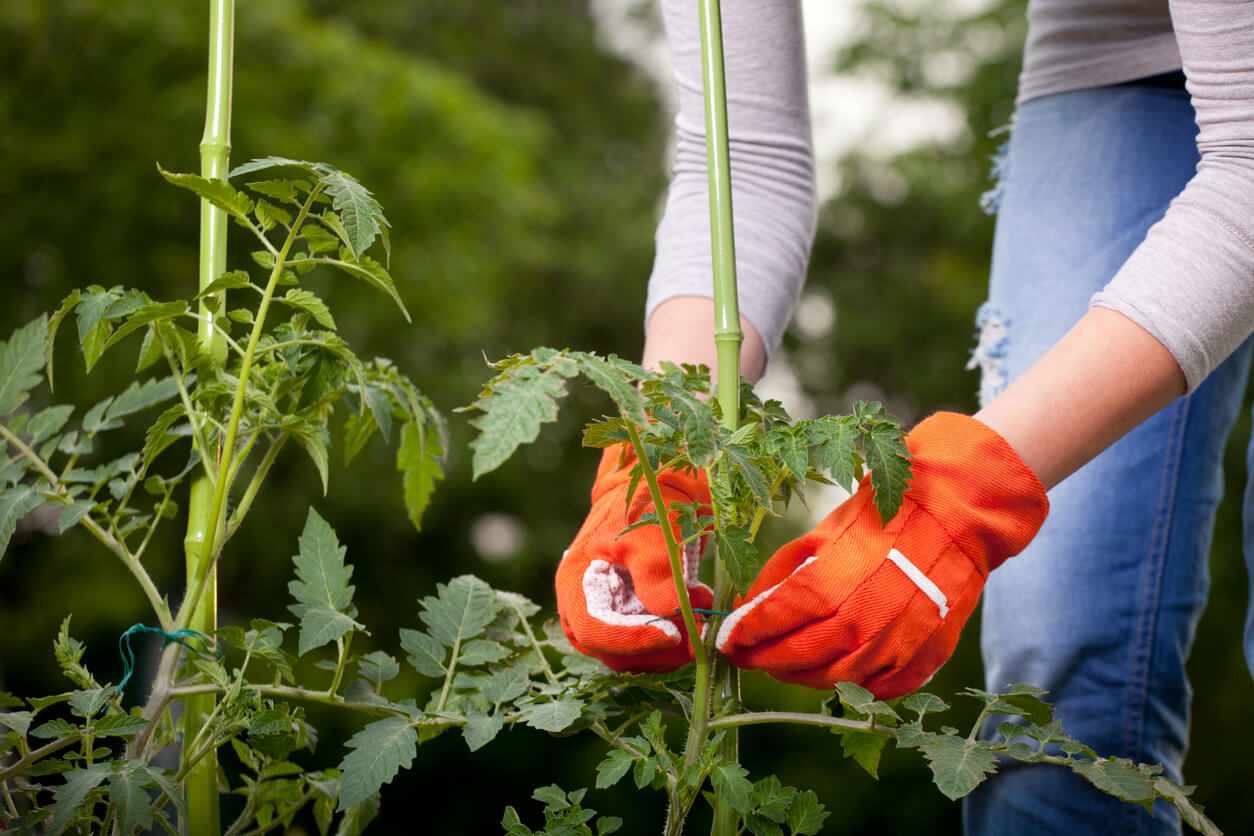The University of Georgia College of Agricultural and Environmental Sciences (CAES) Department of Horticulture will host Ornamental Horticulture Research Field Day at UGA’s Durham Horticulture Farm in Watkinsville, Georgia, from 9 a.m. until 1 p.m. on Friday, Oct. 6.
This biennial showcase will cover a wide variety of topics, including pollinator protection, vegetable pest control and will even showcase new ornamental plant varieties. Gardeners and landscape professionals will also get a behind-the-scenes look at new plant varieties being developed by UGA researchers.
“Quite honestly, if you’re a plant geek of any kind, you are going to enjoy this field day,” said Matt Chappell, field day organizer, CAES associate professor of horticulture and greenhouse production specialist with UGA Cooperative Extension.
Registration for the field day, which is sponsored by the Georgia Green Industry Association, is free, but early registration is encouraged as attendance will be limited to 200 people. For more information, call 706-542-9044 or 706-542-2471.
Visit events.attend.com/f/1383781550 to register and see the full schedule.
For travelers, the Durham Horticulture Farm tour will provide a great launch pad for visiting UGA’s other gardening attractions: the State Botanical Garden of Georgia and the Trial Gardens.
On-site registration begins at 8:30 a.m., and tours start promptly at 9 a.m., rain or shine. In addition to the open house, a free, light lunch will be provided for participants at the tour’s end. The farm is located at 1221 Hog Mountain Road in Watkinsville, Georgia.
Topics include:
- Using Trap Crops in Vegetable Production
Bob Westerfield, senior public service associate
Using trap crops can be an effective way to pull damaging insects away from desirable produce. Once trap crops are inundated with damaging insects, they can be sprayed to knock down the population of the pests. The effectiveness of this method of insect control will be covered as will be cultural practices to control insects in the garden for homeowners and small-market producers.
- Ornamental Breeding from Abutilon to Thuja
John Ruter, professor, and Kaitlin Barrios, doctoral candidate
New selections from Ruter’s ornamental breeding program, which spans from abutilon to thuja, will be discussed. Doctoral student Kaitlin Barrios will discuss her breeding work with hardy hibiscus, which includes interspecific hybrids and breeding for insect resistance and improved flowering and foliage.
- The Georgia Pollinator Spaces Project and Pollinator Census
Becky Griffin, Georgia Center for Urban Agriculture community and school garden coordinator
Plants use a variety of characteristics, such as color, shape and odor, to lure pollinator and beneficial insect flower visitors, including bees, butterflies, flies and beetles. Through research conducted at the UGA Butterfly and Conservation Garden in Griffin, Georgia, certain ornamental floral resources deemed appropriate for Southeastern landscapes were found to attract a variety of potential beneficial arthropods to the ornamental beds and plantings.
- Breeding New Cultivars for Landscapes
Carol Robacker, associate professor
Robacker, a seasoned ornamental plant breeder, will provide an update on UGA’s breeding program at the UGA Urban Agriculture Research Station in Griffin, Georgia. She will focus on promising new selections and potential cultivars of little bluestem, vitex, abelia and spigelia will be highlighted.
- New Woody Ornamentals for your Garden
Donglin Zhang, professor
After returning to UGA from the University of Maine five years ago, Zhang and his laboratory staff have established a fully functional woody plant research laboratory and field breeding and selection program. As part of the field day, his laboratory staff will highlight new ornamental plants for Georgia and adjacent states. Zhang will also discuss the in-depth process of breeding new ornamental varieties.
- Boxwood, Pruning and Biochar Source Research
Tim Smalley, associate professor
Smalley will share the results of his studies on rejuvenation pruning, biochar source amendments to annual planting beds, and the effects of soil pH, mulching and irrigation on growth and disease incidence of Buxus sempervirens 'Suffruticosa.’
- An Update on American Chestnut Research
Ryan McNeill, doctoral student
Did you know that UGA’s Warnell School of Forestry and Natural Resources and the CAES horticulture department are part of the international effort to bring back the American chestnut? McNeil will provide an update on the overall progress of reintroducing the American chestnut as well as what UGA researchers are doing to aid the process.








